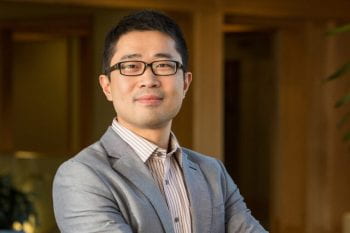Two teams of engineers led by faculty in the McKelvey School of Engineering at Washington University in St. Louis will work toward developing products to monitor drinking water quality and to detect explosives with an electronic nose with one-year, $650,000 Convergence Accelerator Phase 1 grants from the National Science Foundation (NSF). Barani Raman, PhD, professor […]
Water quality monitor, locust-inspired electronic nose under development







